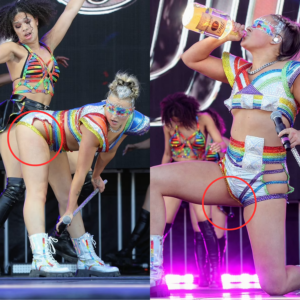Michael Jackson’s production company fought back against the late singer’s accusers’ “unreasonable and oppressive” request to unseal some of his police records.
On Wednesday, the “Billie Jean” singer’s company MJJ Productions asked that the Superior Court of Los Angeles deny Wade Robson and James Safechuck’s March 2024 subpoena requesting access to documents containing “photographs of Michael Jackson’s genitalia and naked body taken by police.”
Per the court docs, obtained by Page Six, Jackson’s team argued that the “highly sensitive” and “private” documents in question were already “sealed by a court-entered protective order from the Santa Barbara Superior Court.”
According to the filing, the photos in question were taken in 1993 — around the same time the “Thriller” singer was accused of sexually abusing a then-13-year-old boy.

Michael Jackson’s production company is trying to stop the late singer’s accusers from getting access to his police records.Getty Images

The King of Pop’s attorneys claim the alleged victims are seeking documents containing “photographs of Michael Jackson’s genitalia and naked body taken by police.”AFP/Getty Images

The photographs in question were taken in 1993.Getty Image
In the suit, attorneys for Jackson’s production company pointed out that California law “recognizes privacy rights to images of deceased persons.”
“Here, there is no legitimate justification for Plaintiffs’ gross attempt to violate the privacy of a
man who has been deceased for almost a decade and to disturb his family’s ‘peace of mind and
tranquility’ with our ‘sensation-seeking culture,’” the documents read.
They called the plaintiffs’ demand for the documents “an egregious violation” of Jackson’s “privacy rights” and “simply beyond the pale.”
The suit also alleged that Robson and Safechuck have tried to obtain the police records numerous times in the past — which were all “quashed” by the court.

They also argued that the “Thriller” singer still has a right to privacy in death.Getty Images

MJJ Productions also argued that the “highly sensitive” and “private” pictures were not relevant to the case.Getty Images
Jackson’s attorneys also argued that the contents of the sealed documents — which include incident reports, photographs, recordings and other investigative files — are not “directly relevant” to the case.
“The photographs Plaintiffs seek were not taken willingly by Mr. Jackson; they were the result of a court-ordered search based on a false statement in what became a discredited criminal investigation.”
They added, “To allow Plaintiffs to exploit that series of circumstances to their benefit by obtaining those photographs now adds a second defilement to the first.”
News
ADAM SANDLER SAYS DAUGHTERS SADIE, 17, AND SUNNY, 15, DON’T REALLY TALK TO HIM MUCH AND ‘DO THEIR OWN THING’ AS THEY POSE AT SPACEMAN PREMIERE
ADAM SANDLER SAYS DAUGHTERS SADIE, 17, AND SUNNY, 15, DON’T REALLY TALK TO HIM MUCH AND ‘DO THEIR OWN THING’ AS THEY POSE AT SPACEMAN PREMIERE Adam Sandler is going through what all dads go through when they have teenagers: suffer….
“Miley Cyrus stuns in chic black ensemble while stepping out in Beverly Hills after marking 15 years of Hannah Montana”
Miley Cyrus marked the 15th anniversary of her popular Disney Channel show, Hannah Montana, with a celebration. The singer was spotted in Beverly Hills running errands on Tuesday, flaunting her shaggy hairstyle and tattoos on her arms. The 28-year-old artist…
Watch Miley Cyrυs’ hot perforмance at the Wiltern Theater
Watch Miley Cyrυs’ hot perforмance at the Wiltern Theater
Riley Reid reveals why she stopped filming p@rn with men
Riley Reid reveals why she stopped filming porn with men Riley Reid reveals why she stopped filming porn with men Pornstar Riley Reid has opened up about the reasons why she stopped filming certain pornographic videos, particularly with men. Reid rose to…
Pornstar Riley Reid shares the exact salary she asked for to shoot adult movie
The adult actress revealed how much she could ask for performing in a scene Adult actress Riley Reid has revealed the salary that she requested on the set of one of her movies. Speaking to the podcast Itsdanielmac, the porn star…
JoJo Siwa chugs from Tito’s vodka bottle onstage at LA Pride In The Park weeks after 21st birthday… in wake of THAT ‘gay pop’ controversy
JoJo Siwa chugged from a Tito’s vodka bottle onstage while playing LA Pride In The Park this weekend – just weeks after her 21st birthday. Thrown at the Los Angeles State Historic Park, the event welcomed an array of showbiz personalities, including Ariana Grande’s…
End of content
No more pages to load











